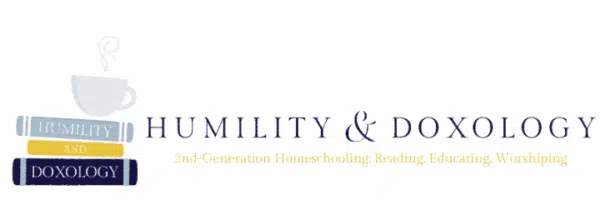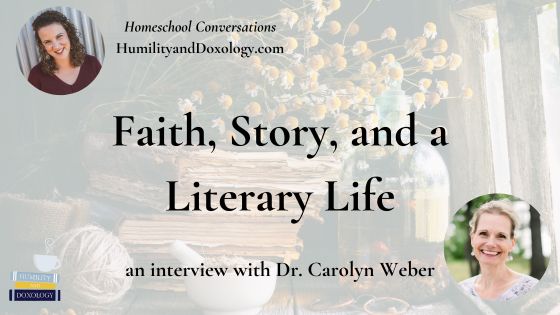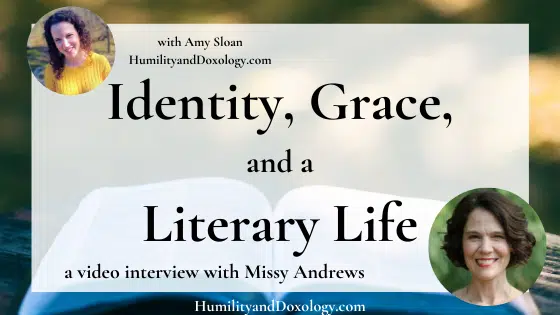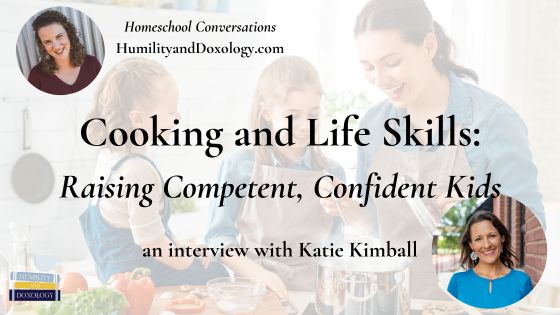What does it mean to truly love books, raise readers, and read the Bible not only as literature but as the living Word of God? In this conversation, award-winning author and professor Dr. Carolyn Weber, best known for her memoir Surprised by Oxford, joins me to discuss the intersection of faith and literature, Christian homeschooling, classical education, and the power of living books. From her childhood shaped by storytelling and libraries, to her transformative experience reading the Bible cover to cover at Oxford, Dr. Weber shares wisdom for parents, educators, and lifelong learners. With practical advice on approaching new books with patience and humility, encouragement for homeschool families raising readers, and reminders to find joy rather than pressure in education, this discussion is a refreshing call to read with delight and faith.
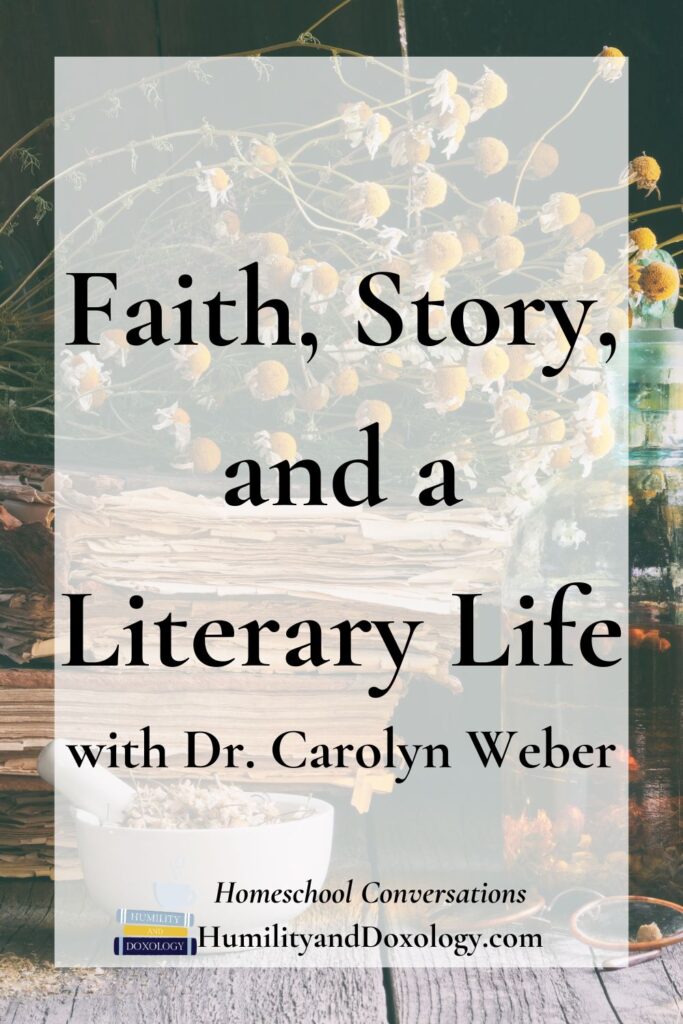
{This post contains paid links. Please see disclaimer.}
- A Childhood Shaped by Stories and Books
- How Faith Transformed a Literary Life
- Reading the Bible as Literature and as Living Word
- How to Approach a New Book with Patience and Humility
- Raising Readers in the Christian Homeschool
- Living Books, Not Checklists: Classical Education and Great Ideas
- Writing, Faith, and the Parallel to Sanctification
- Encouragement for Parents Reclaiming Their Own Education
- Restoring a Hard Day: Go Outside and Reconnect
- Reading with Joy, Faith, and Patience
- Key Takeaways:
- You may also enjoy:
- Find Dr. Carolyn Weber online
- Check out all the other interviews in my Homeschool Conversations series!

A Childhood Shaped by Stories and Books
Dr. Carolyn Weber’s love of literature began at home. From her grandmother’s Hungarian folktales to magical trips to the bookmobile and a mother who kept her bookshelves open, her early life was steeped in stories. Her grandfather often reminded her, “Any answer you need, you can find in a book.”
How Faith Transformed a Literary Life
Although a voracious reader, Dr. Weber considered herself agnostic through her teen and university years. While studying literature at Oxford, she read the Bible cover to cover for its literary value, and was struck by its power, intricacy, and living truth. Everything she had ever read suddenly pointed to God’s glory.
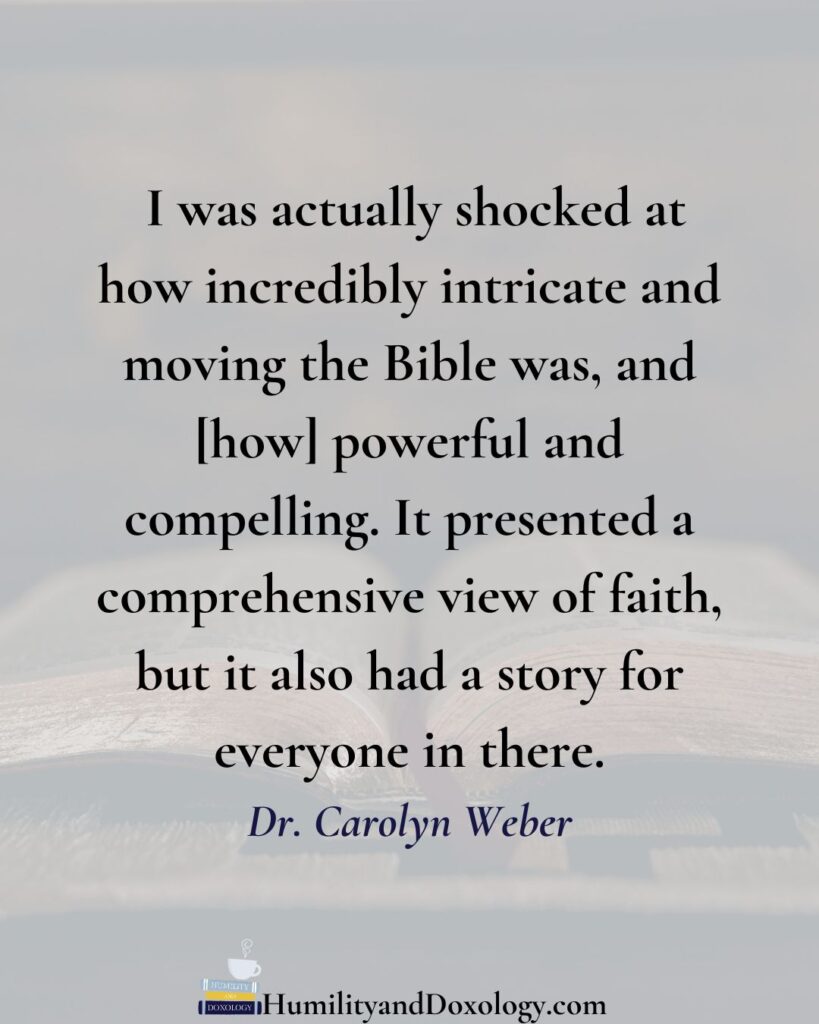
Reading the Bible as Literature and as Living Word
The Bible contains poetry, narrative, prophecy, and history, making it unparalleled in depth and richness. Reading it as literature trains us to see themes, symbols, and connections across all books. Yet it is also uniquely alive, speaking to each reader in every season of life.
How to Approach a New Book with Patience and Humility
Dr. Weber encourages readers to enter a book with openness and willingness to listen. Great works require patience, often revealing new meaning over time and upon rereading. Reading is an act of humility, a way of listening to another voice without rushing or reducing books to checklists.
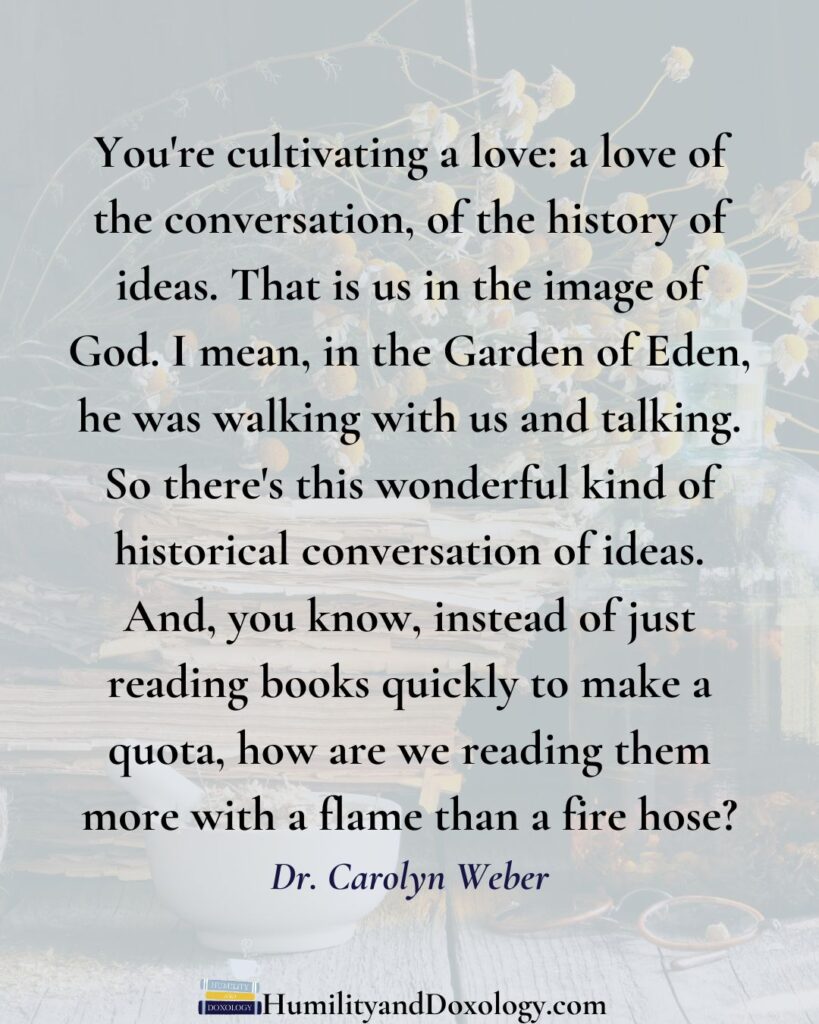
Raising Readers in the Christian Homeschool
For homeschool parents, Dr. Weber emphasizes modeling a genuine reading life. Making books part of daily rhythms, protecting time for conversations, and asking questions that connect stories to life all help children see reading as relevant. Joy is contagious; when parents delight in books, children are more likely to do the same.
Living Books, Not Checklists: Classical Education and Great Ideas
Rather than focusing on “perfect” book lists, Dr. Weber highlights reading representative texts across history. Works like Paradise Lost and Frankenstein show how authors converse across centuries, revealing the great conversation of ideas. Reading should feel more like a flame that warms us than a fire hose that overwhelms.
Writing, Faith, and the Parallel to Sanctification
Writing her memoir, Surprised by Oxford, was life-changing. For the first time, Dr. Weber wrote explicitly for God. The process taught her courage, reliance on trusted editors, and the humility of revision. We saw parallels between rewriting and sanctification: God rewriting us by grace as we grow in Him.
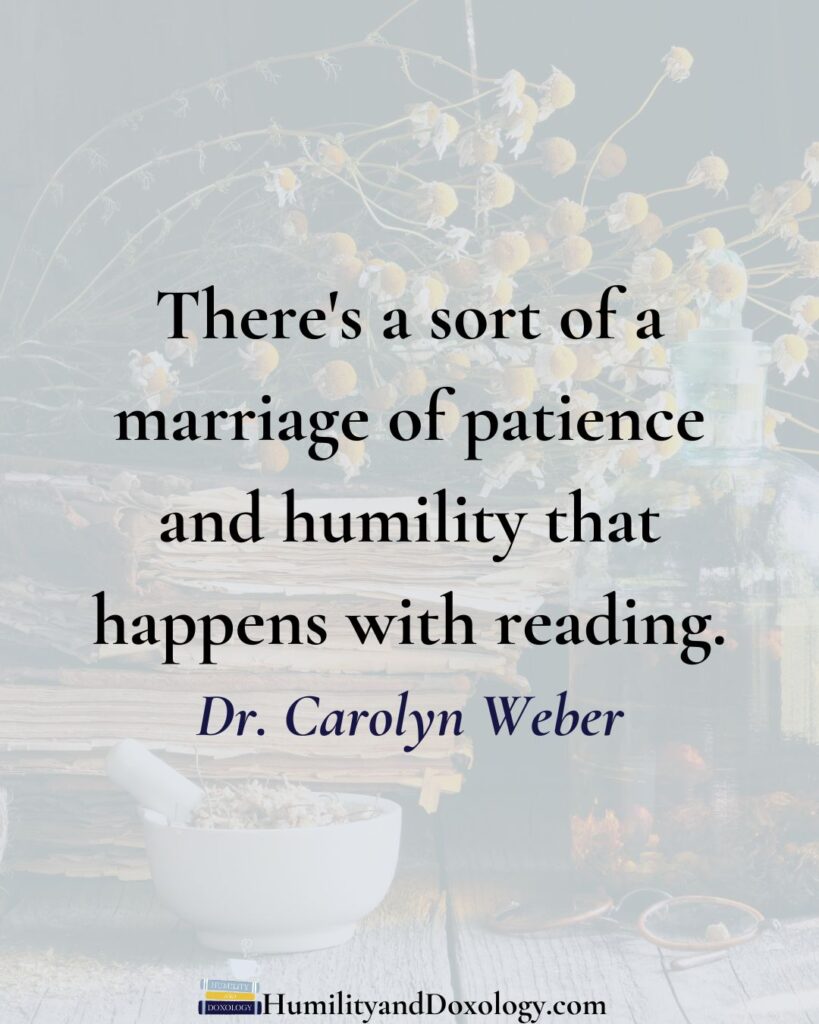
Encouragement for Parents Reclaiming Their Own Education
Homeschool parents who feel gaps in their own literary background should not despair. Begin with delight. Choose works that spark joy or curiosity, whether it’s Athanasius’s On the Incarnation or a novel by Wendell Berry. Learning alongside your children models humility, curiosity, and lifelong growth.
Restoring a Hard Day: Go Outside and Reconnect
When homeschool days go awry, Dr. Weber offers a simple, timeless tip: go outside. Whether it’s walking, watching birds, or skipping stones, time in nature restores perspective, nurtures imagination, and refreshes both parent and child.
Reading with Joy, Faith, and Patience
From family storytelling to Oxford lectures, from writing memoir to homeschooling her own children, Dr. Carolyn Weber’s life testifies to the transformative power of words.
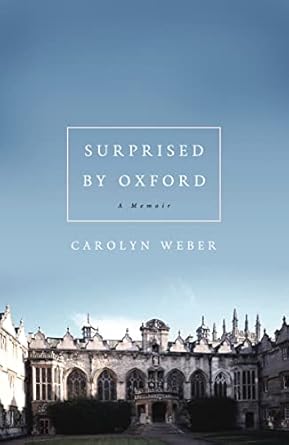
Dr. Weber reminds us that reading is not about rushing through perfect book lists or checking boxes, but about cultivating joy, curiosity, and faith. Whether we are exploring classical education and great books, modeling a rich reading life for our children, or finding refreshment by simply going outside on a hard homeschool day, the goal is the same: to nurture hearts and minds through story. By approaching literature with patience, humility, and delight, and by seeing the Bible as both living Word and great literature, we can raise readers, reclaim our own education, and participate in the great conversation of ideas that ultimately points us back to God.
Key Takeaways:
- A love for literature often begins at home — Dr. Weber’s literary life was nurtured by family storytelling, regular library visits, and access to books of all kinds.
- Faith reshapes reading — Coming to Christ after reading the Bible cover to cover transformed how she understood all literature, revealing deeper spiritual themes.
- The Bible is unique as literature and as the living Word — Its layers of story, prophecy, and truth train readers to think deeply and perceive meaning beneath the surface.
- Approach books with patience and humility — Enter the author’s world, resist quitting too quickly, and allow meaning to unfold over time.
- Modeling a reading life matters — Parents who read for pleasure, curiosity, and discussion inspire their children to do the same.
- Joy is contagious in education — Start with books that delight you and your children to spark authentic engagement.
- Avoid checklist mentalities — Deep reading and conversation matter more than racing through “perfect” book lists.
- Literature connects across time — Understanding representative texts from different eras enriches the reading of later works through shared themes and references.
- Writing can be spiritually transformative — The act of creating, revising, and offering work to God mirrors the process of sanctification.
- Nature resets learning — When a homeschool day goes wrong, heading outdoors for fresh air, play, and beauty can restore perspective and connection.
You may also enjoy:
- Nurturing a Love for Literature: Beowulf, Shakespeare, and Beyond
- Cultivating Discernment and Delight in Children’s Books: A Conversation with Redeemed Reader
- Classical Education, Homeschooling, and the CLT
- Words, Words, Words: Why (and How) to Teach Writing
- Reading for the Love of God with Dr. Jessica Hooten Wilson
- Reading, Writing, and Making Connections: Homeschooling High School English (with Betsy Farquhar)
- Stories, Truth, and the Reading Life (with Megan Saben)
- Classical Charlotte Mason Homeschooling (with Adrienne Freas)
- Reading and Teaching the Great Books (with Kristen Rudd)
- Identity, Grace, and a Literary Life (video interview with Missy Andrews from Center for Lit)
Find Dr. Carolyn Weber online
Dr. Carolyn Weber holds her degrees from Western University in Canada and Oxford University, England. She’s an award-winning author, professor and speaker whose work considers the intersections between faith and literature. Her memoir “Surprised by Oxford” was recently made into a feature film. Dr. Weber now teaches at New College Franklin in Franklin Tennessee. She has homeschooled and been involved in tutorials herself. She resides with her husband and four spirited children in the beautiful Tennessee countryside.
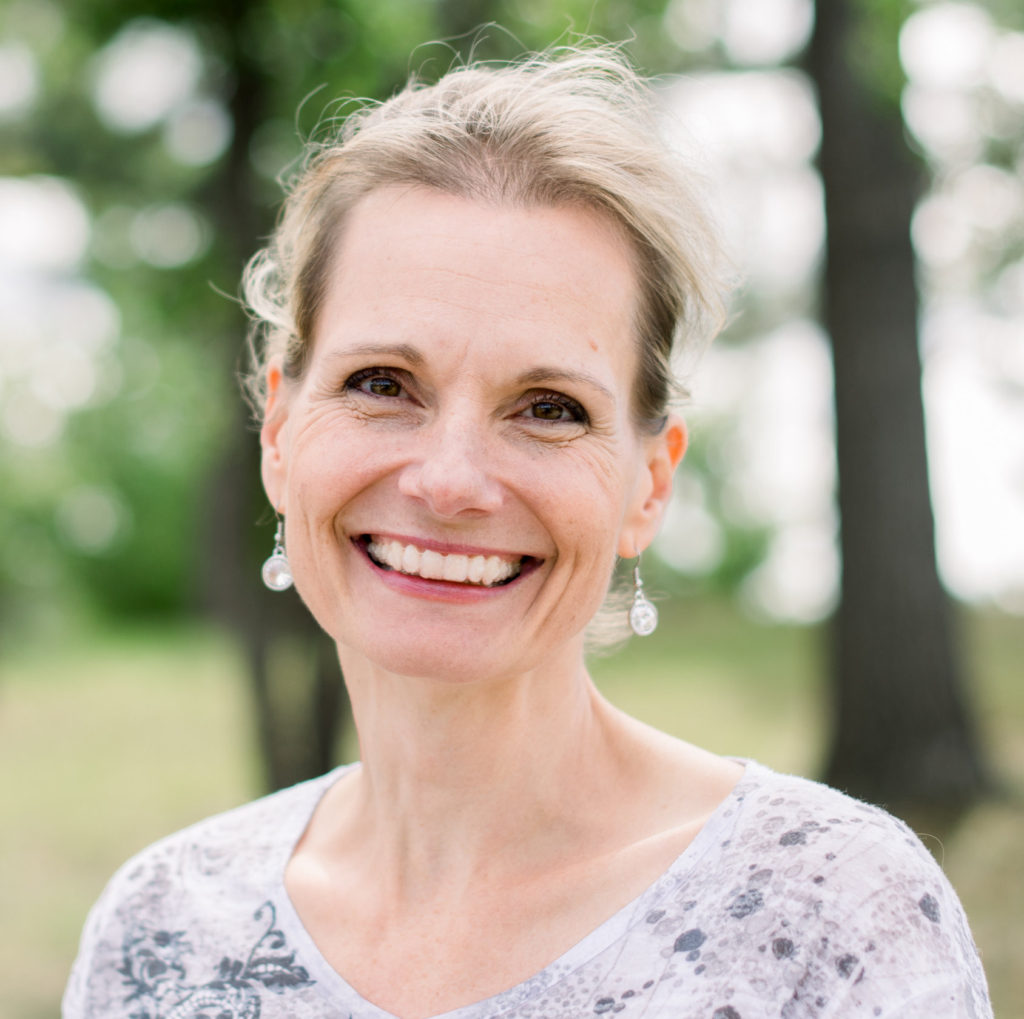
Check out all the other interviews in my Homeschool Conversations series!
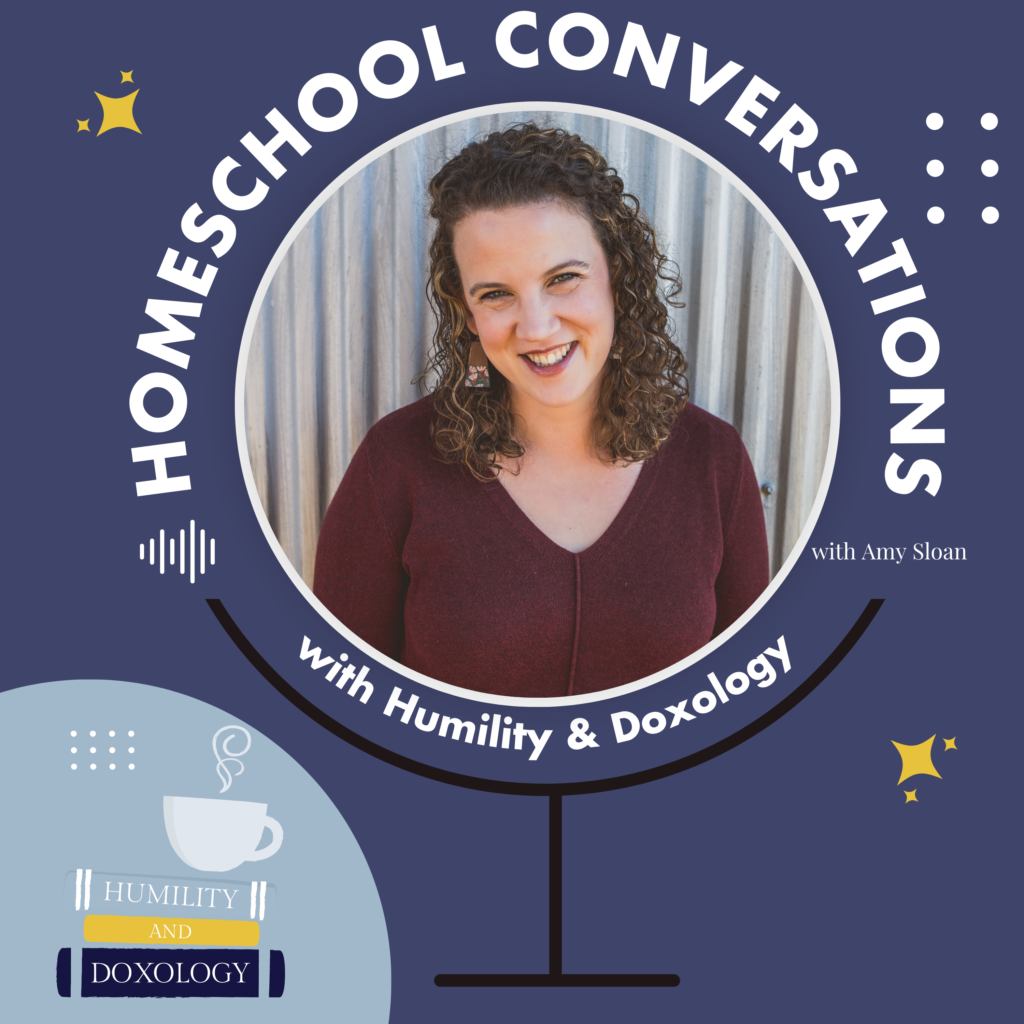
Amy Sloan: Hello friends, today I am joined by Dr. Carolyn Weber. She holds her degrees from Western University in Canada and Oxford University in England. She’s an award-winning author, professor, and speaker whose work considers the intersection between faith and literature. Her memoir, Surprised by Oxford, was recently made into a feature film. Dr. Weber now teaches at New College Franklin in Franklin, Tennessee. She has homeschooled and been involved in tutorials herself, and she resides with her husband and four spirited children in the beautiful Tennessee countryside. So there is your, you know, official bio there, but if you want just tell us a little bit about yourself and your family, and then I would especially love to hear a little bit about your literary life. Was there a particular book or author that originally sparked your love of literature, and then did your understanding or perspective on literature change at all as you came to faith?
Dr. Carolyn Weber: Those are lovely questions. Yes, thank you. So I have four children with my husband. My husband and I have been married almost 30 years, and so we have our oldest daughter who just was a freshman this year, just completed her first year. She actually attends New College Franklin where I teach, which is a great joy. So I kind of did the happy dance inside when that happened and tried not to betray it too much, but she chose it of her own accord. So it was really delightful to have her there and have that time with her this year, and we’re really enjoying the Nashville, Tennessee area. We had never lived in this area before. We have always been Canada, UK, out west, and we came here about four years ago so that I could work closer with the creative community here in faith and literature and film and some crossover with music. So we’ve loved that creative faith-filled community, and then I have three boys after that. So we have twin boys in the middle that I’m still homeschooling. They’re in high school, so partial homeschool, partial tutorials. And then my youngest just turned 12, so it’s a fun, busy season. It’s busy at every stage, but we really enjoy being with them.
Amy Sloan: Yeah, it’s such a beautiful part of the country out there in the Franklin area. Well, while we’re sort of your backgrounder, what sparked your love of literature and your literary life?
Dr. Carolyn Weber: Oh, my literary life. Absolutely, hands down, my mother. I love it. I think there’s no greater blessing than a good mother and a good mother who loves, and I don’t mean this in any kind of academic way or condescending way or elitist way, but a mother who loves words, language, books, stories. So I grew up with my grandmother telling lots of stories from Hungary. She would tell them to me in Hungarian, and then my mother as well. My mother had to read a lot on her own to learn English as an immigrant child, so she had a great respect for all languages. But she would take us, Amy, to the bookmobile, which is a very exciting thing. I have not seen them around here in the States. I don’t know if the States have them, but bookmobiles were like these little Parnassus on wheels, like these little bookstores that would come to you, like little loaning libraries. They would come to your area, and it was always so magical to go to the bookmobile. We knew libraries growing up. My mom made a habit of taking us to lots of different types of libraries. So I think, oh gosh, I mean, I read all the magical things, Beatrix Potter and the Narnia Chronicles and everything, even as a very young child. But I can remember my mom, really, it was whatever was on her bookshelf was open to us. And so oftentimes, and very much cultivated reading at night in order to relax, which wasn’t always relaxing, because my mom also loved mysteries.
Amy Sloan: It’s hard to go to sleep before you know who done it.
Dr. Carolyn Weber: I can remember being at a little cottage. We used to go to this old little dilapidated cottage, my other grandmother’s cottage, and we’d read into the night with the foghorn in the background. It was just lovely. And after being tired, you know, as children, all crammed in one big brass bed from being in the beach all day and hearing the foghorn and reading Jane Eyre, and I must have been maybe, you know, 10. And it was terrifying. I read Rebecca there as well. So like, there were some things that were quite terrifying, but she was very, just very much about, my grandfather used to say, any answer you need, you can find in a book. So there was always a great reverence for books and for reading things and for, we just read things very young, and we’re exposed to all sorts of wonderful things.
Amy Sloan: That is very reminiscent of my own childhood. So I was homeschooled myself, but my mom would read to us all the time. Books were everywhere. One of her, you know, we didn’t really have very nice furniture, but my mom would always say, you can sit on a book, but you can’t read a chair. So we spent all our money at the used bookstores instead of getting anything else. And you know, we would be on family trips and we’d see a sign for, oh, a bookstore, a thrift store, an antique store. We’d always go in and search through the dusty shelves for those hidden gems. And so I think that just love of reading and that sort of life surrounded by books is such a valuable gift that parents can give their kids, for sure.
Dr. Carolyn Weber: Mm-hmm. Very magical. Yeah.
Amy Sloan: Well, did your approach to reading or thinking about literature change or deepen in any way as you came to faith in Christ?
Dr. Carolyn Weber: Oh, yes, absolutely. I mean, I was a voracious reader growing up and in school, and I became a Christian in graduate school in England while studying at Oxford University. So I was in my early twenties. So at that point I’d had this long and deep, long reading life and I was studying literature. But I was somewhat antagonistic to the faith at that point. By the time I was a teenager, I really would have defined myself as agnostic, didn’t believe that my father was in and out of our lives. In many ways, I didn’t believe in a heavenly father. And so by the time I was studying as an undergraduate in a fairly atheist environment to secular university, that approach to literature as well was really dislocated from the Bible. So when I started reading more about world religions, actually for my graduate work, and I read the Bible from cover to cover out of interest because I had never done so. And I thought, well, I guess I better do this. This is actually a culturally really important work, as well as standing up to some of the Christian friends I was meeting. I was actually shocked at how incredibly intricate and moving the Bible was and powerful and compelling that it presented a comprehensive view of faith, but it also had a story for everyone in there. And so after that, I started to think, oh, wait a minute. I started to realize everything I had been reading really had pointed to this glory of God, had pointed to this longing I’d had and everyone I knew who had for something greater than ourselves. And the more I read, the more I realized everything I had also read and was continuing to read was pointing to that truth.
Amy Sloan: I think that’s fascinating that you first came to read the Bible, just start in Genesis, read to the end, and more for its literary value. And then you started seeing how there was something beyond and living about it, right? And I’m wondering how then you think about how we ought to read the Bible as literature and also as more, and how does reading it in a literary way deepen our understanding of the scripture?
Dr. Carolyn Weber: Well, it’s a great question. I mean, I do really admire people like Leland Rykin, Dr. Rykin, his daughter, Margaret Beard has done a beautiful amount of work as well now on the Bible as literature, that on a very technical level, reading the Bible exposes us to all sorts of forms of literature, poetic forms, narrative styles, heroes, all sorts of things. It’s just a good story. I mean, Lord Byron, who was famous for being quite the bad boy, just admired the Old Testament. I mean, he was like, there’s a ton of action. This is really interesting. But then when you begin to see the prophecies and how they play out in the Old Testament, and all the details of all the different people’s lives, and how human they are, and how much it explains so much of our behavior in our own hearts, and then the coming of Christ, and the plan for redemption, everything being created through God’s Word, and then being redeemed through the same thing, you can’t make this stuff up. It’s incredibly beautiful and intricate. So I think the Bible is the only piece of literature we have that has as many levels as it has. I agree with Madeleine L’Engle that we can’t plummet steps. It actually, I think, teaches us, by reading it itself, to be humanetical thinkers, that there’s more going on beneath the surface than meets the eye, because there are technical, formulaic devices and things, but there’s also story, and then deeper story, and then deeper story, and then overarching story, much like those allegorical notions that we have from the medieval times. So there’s so many elements of story going on that, in a way, it also makes us, I think, more perceptive in terms of reading life and reading other people.
Amy Sloan: I know my husband has said that even though reading was not something that was one of his top favorite things to do as a kid or a teenager, the more he has read the scripture, which he loves to read, and he reads from beginning to end multiple times, the more times he reads the Bible from beginning to end, the easier it is for him to read and understand other books or poetry and things like that, because like you were saying, it’s training your mind to see symbolically, to see thematic connections, right? Especially, I think, when we do read it as a unified whole. I think it can be easy for people to just sort of pick and choose verses or chapters or favorite things, and not that there’s never an appropriate time to do that, of course, but there’s something really unique about starting at the beginning and reading to the end and then doing it again. You get a different picture on the unified story.
Dr. Carolyn Weber: You do, and it’s also a living word. So it’s always relevant to you, regardless of where you’re at in your life, going to it for wisdom, going to it for how it’s going to speak to you, how God’s going to speak to you through it. So I really agree with Bonhoeffer as well. There’s all other literature in the world and then the Bible. You can have a poem about the Bible, but it’s not the Bible. It’s in its own class, because there’s so many things happening with it at once. And so you can read it as this whole, but you can also have these bites, right, like the Lectio Divina bites of bread that feed you where you’re at at the journey. Yeah.
Amy Sloan: Well, what about when it comes to other books? Obviously, scriptures are unique, but when we are thinking about approaching any book, how do we kind of enter into this new book? We’ve never seen it before, right? We’re about to crack it open. What are some of the ways that we can be better readers as we approach a new book?
Dr. Carolyn Weber: That’s a great question, because there’s also so many types of genres. And I do think that there are great, long-standing, wonderful books out there. You know, How to Read a Book and Mortimer Attler, it just always bears rereading. But I think one thing is to approach it with an openness of, if I am frustrated by something or confused by something or don’t understand something, I’m going to read along until I do.
Amy Sloan: Not just toss the book.
Dr. Carolyn Weber: I don’t get it. Yes, like the floating spar to mend that sink and rise and sink and rise and sink again. I’m going to hold on to something that I understand. So I have to tell this to students because we might be really intimidated also reading older literature or literature from a previous period or literature that at first might be new, but you have to immerse yourself in that author’s world. So if you’re reading for fact, you’re reading for biography, I’m not going to say necessarily that’s easier. I’m just going to say that there might be a chronological system you can follow or stop and summarize. But in terms of entering a fictional story, giving yourself, extending grace to yourself to be able to sort of experience it until there is something that you can hold on to that gives you momentum or gives you a place in which to stand and then move forward. Oftentimes, I think stories have a way where we read and much has to catch up with us when we pause. I think that’s why there are chapters, you know, or there’s even punctuation. I mean, you think about what happens in a sentence. It’s sort of a natural form of rhythm before we have to breathe again. So this sense of it’s wide-blank verse, you know, that unrhymed iambic pentameter, that five beats is so effective for Shakespeare’s speeches because in a way, it is poetic without the rhyme, but it also creates a rhythm in which we can digest things. So I think in terms of reading, being able to have a willingness to enter another world, right, as Lewis says, to be a thousand people without losing yourself. You’re entering, you’re having this willing suspension of disbelief by entering into the text, but you’re also meeting it partway there by being willing to have this experience of ebb and flow in the reading and the understanding of the story.
Amy Sloan: We think about loving our neighbor, you know, as a person that we see by being willing to listen, to being humble, to trying to see things from their point of view. And I think there’s a sense in which we ought to love our neighbor, the author, right, as we’re reading the book too, which comes from being willing to listen, having humility. And that doesn’t mean we’ll agree with everything an author says, but we have to listen first before we can try to respond.
Dr. Carolyn Weber: I think that’s a wonderful observation that, you know, reading in many ways is like holy listening and there’s a patience involved and we’ve become a very rushed and harried culture. And so getting to the end of a book and actually letting it sit or settle with you, even if you disagree with parts of it or parts of it irk you. I used to have a professor who would say, always pay attention to the parts that irk you. Write your paper on something that really bothers you. And of course, there can be such a thing as a book that’s really difficult. As I get older, I get more selective. I used to never, ever not finish a book. I felt the social contract to always complete a book. But I don’t know if it’s just older in the sands of time through the glass of mortality, but I think sometimes, well, you know, I’ve really given this the old college try and I don’t know if I can get to the end. That’s quite rare. I think usually what you were saying about having a humility to also think about other points of view or a patience, or sometimes some books actually I think don’t work as well till you get to the whole end and look back. Or they speak to you more powerfully at different points in your life. I’m not going to say they’re wasted on the young, but there’s definitely, um, retrospect is really powerful. So I still think you’re right. There’s a sort of a marriage of patience and humility that happens with reading.
Amy Sloan: I feel that way about Till We Have Faces. The first time I read it as a teenager, I was like, I know this is supposed to be Lewis’s best book, but I just, I’m really having a hard time understanding it. And like every decade I return to it, I’m like, oh, I think I’m starting to get it a little bit more. Still not sure I’m wise enough to truly fully grasp it, but it’s one that as you grow and change, it definitely, I mean, that’s the mark of a great book, right?
Dr. Carolyn Weber: I think so too. I think so too. And that’s one of the blessings of aging when we’re worried about other things is I think almost really everything gets better rereading it.
Amy Sloan: Yeah. Well, you know, my audience as they’re listening are primarily homeschool parents. And I know that we have this desire to raise children who love to read, who know how to read the great books and even the good books, to be able to understand and engage with them like we’ve been talking about. But a lot of parents feel really overwhelmed or uncertain. Maybe they didn’t have any kind of literary background themselves. They’re like, I don’t know how to read this book, and now I’m supposed to help my children learn and understand. So what perspective or encouragement would you have for parents wanting to teach their children how to read well? Are there certain questions or discussion things that you would suggest, anything we should avoid perhaps?
Dr. Carolyn Weber: Oh gosh, that’s a big question because every home is a little different. I think first and foremost, simply modeling. Even if you’re not reading out loud, but simply modeling to your students that you have a reading life or a thinking life. Again, not to be that you have to be a reader of a certain type, but I think reading all sorts of things shows your children that you are curious outside of your own thoughts. And I think it’s incredibly important too, to get away from just scrolling. Quick reads or reads that are judgmental or reads that are only, of course, it’s important to be up on current events, news, things like that. But if we’re tick-talking, we’re going to be not modeling to them as well, reading something, really talking about it. I’m a big advocate of dinner table conversations. And those get harder as the kids get older, for sure, because everybody’s in a million directions. We have boys that play competitive travel baseball. We have kids doing all sorts of different things. So that can be hard, but when it happens to really protect that time or to try and make it happen as regularly as you can, I think discussing books you read, making them available. I think it’s a particular challenge sometimes even with my boys, I have found, because they don’t want to pick up a book with a girl on the cover at a certain age. So you have to think, you don’t want to judge a book by a cover, but I think as a mom of boys, I’m like, you do, because when there’s a lot of ruffles on a Jane Austen book, they’re kind of like, huh. But my teenage boys, for instance, read Jane Eyre last year. They really enjoyed it. I think having good discussion points along the way, asking them questions that make the book relevant to their own lives is key. Having them journal or jot down things or make notes, but simply talking about what they’re reading, what you’re reading, making sure they always have something they’re reading nearby, by their bed, going on a trip, camping and making it fun with a flashlight, anything like that, that sort of gets them finding too, I think, a particular vein of something they enjoy. And again, I’m not beyond that. I used to think, my kids, they’re just going to read whatever. No. It’s like crying about your child who sleeps through the night and then you get twins. And you have three under three and you’re just thinking, it’s a good day if I shower. I don’t think there’s any rhyme or reason except for really tending to the joy of something. I remember my mom crying in despair because my brother wouldn’t read anything. And then he went through all the Hardy Boys and read them voraciously and loved them and then went from there to newspapers and went from there. And his whole life, he was an avid newspaper reader from all over the world. So there’s going to be different genres that speak to different people, finding them something that they enjoy, that they have a passion for, that they want to get to the end to. I had one twin that loved Harry Potter and the other that didn’t. So you love survival stories. So what is it? I think also you can give them the tools and the encouragement to finish something that’s difficult so that they have a sense of satisfaction. So even if you read, for instance, like you were saying, Tilly of Faces and you thought, my goodness, what is this? Having the satisfaction of having read it is, I think, important for children as well. And then going back and teasing things out of it. I’m a big fan of Maria Montessori and the, oh, how can I blank on her name? Because she’s delightful. The narration. Charlotte Mason. Charlotte Mason. Yes. I can’t believe it. You can tell it’s end of term, so my apologies. But thoughtful homeschool theories or theories of the dignity of the child, the center of the child, so that it’s never a shaming process like, oh, you didn’t understand this. It’s a narrative process, a process of stopping and asking a lot of questions and that as well and seeing what spoke to them. I’m always amazed. Maybe this is the blessing of having twins because on one hand, it’s exhausting, but on the other hand, what’s amazing is they will both notice very different things having read the same book at the same time. And I love that, um, what spoke to them in different ways, uh, different Bible stories in that as well. So I think making books, living books, you know, as Charlotte Mason says, but, you know, this idea that they are modeling in that idea of the, of our living Bible, but that they are relevant to our own lives. Um, and people who have lived for thousands of years prior to us have felt the same things, you know, um, Achilles rage and Odysseus conquering that with the suitors and those things, they, they still beat in the heart of, of boys today. Um, you know, girls too. So those, what threads can we pull out to keep these stories relevant and alive to them and how we’re talking about them with our children.
Amy Sloan: And that’s such a different perspective than just being like, okay, here are the 25 books everyone should read before they graduate. Just like, go get the book, own that book, check it off and treat it like, um, almost like an object instead of something like, hey, you don’t have to understand everything about it. Let’s enter into this book, let’s read it and discuss it. And then if it’s a really good book worth revisiting, let’s, I even remind my children, like, hey, you’re going to read this again. In fact, you’re not going to get everything in the Iliad the first time you go through, it’s okay that you felt a little bit overwhelmed by, wow, that was a lot of, you know, night veiling their eyes.
Dr. Carolyn Weber: And there’s also a lot of, like, eyeballs rolling and stuff. So that’s cool.
Amy Sloan: Yes, yes. I mean, I’m a big fan. I was always more a fan of the Iliad than the Odyssey. I don’t know what it says about me, but it’s like, you know, we’re going to return to this again and again, and you’ll understand it in new ways and deeper ways, as opposed to just being like, well, got that book and never have to read Homer again. Like, no, that would be a terrible guess.
Dr. Carolyn Weber: I’ve never been a big fan of just the perfunctory checklist. I certainly think it’s helpful to consult those or, you know, to think about what are also meaningful reads in different ways. But sometimes there’s movements in classical education circles that are fantastic. I love what they’re doing and what they’re reading, especially given our larger culture. But there can be sometimes an emphasis so much on the firehose approach, too, you know, and then by extension, the shaming of the parents. Well, if you haven’t read these, like, 50 books in these two weeks.
Amy Sloan: Somehow you’re not educated.
Dr. Carolyn Weber: Right. And one thing I really, really appreciated at Oxford is, of course, we were handed these massive reading lists when we arrived. I mean, but there was this idea that you’re going to live and breathe these things. And some of them you’re going to get to, you might not get to all of them, but you’re also going to be knowing that there’s an osmosis taking place. There’s always something on the list to go to. There’s always something around you. There’s always these friends. And you’re cultivating a love, a love of the conversation, of the history of ideas. That is us in the image of God. I mean, in the Garden of Eden, he was walking with us and talking. So there’s this wonderful kind of historical conversation of ideas. And, you know, instead of just reading books quickly to make a quota, how are we reading them more with a flame than a fire hose?
Amy Sloan: That is wonderful. I love that perspective. And I’ll say, as a mom of two adults now, it’s really fun to see now that I’m not assigning them books, right? But just the things that they still want to continue to read and explore. And, you know, there are books that are really important books that neither of them got to. Like, you know, you don’t have to read them all by the time you turn 18. You have a whole life to read, right?
Dr. Carolyn Weber: There’s thousands and thousands of them for all of us, right? Like, millions. I mean, there’s so many important books. And that’s what’s one of the beautiful things is that there’s always one around the corner we haven’t gotten to.
Amy Sloan: Well, I know that we’ve all had the experience of having books shape us at different times of our life, maybe even change the way we think or view the world. And I was curious, since you are an author as well, if you have that same experience, like, as the one kind of creating the book from the creator experience, if writing a book had a similar mind or heart-changing impact on you as it does when you read a book? Or what was similar or different, maybe?
Dr. Carolyn Weber: Oh, well, you ask great questions. It’s so easy to get with you. Writing a memoir was really life altering. I didn’t anticipate ever doing that. I had always been trained as an academic. So all of my writing had been academic prior to that, which was just my line of work. And I love that, the discussion of literature, criticism, ideas. But this had been tapping on my heart for some time after I had become a believer and teaching students for many years. And so it kind of grew out of years of that percolation in sharing my faith with my largely unbelieving family and friends as well. And so I did that sort of separately on the side, was told not to do it, actually, as an academic in a secular university until I had tenure, and even then to be wary. And so I sort of did it quietly for a while. But that was probably life-changing in the sense of writing it primarily. It was the first thing I had really, really written for God, the idea of working for him, not for someone else. It had a whole different experience to it than writing for, say, an academic journal, although you want to shift and do everything you’re doing for working for God. But for me, in that very specific way, that was really life-altering after that in terms of thinking about our whole telos and work ethic and living ethic. But it did on a technical level, it really gave me, wow, so much more respect for anybody who even tries. Even people who have these closet novels that they’ve written and they have in their drawers and they don’t want to share with the world because it is incredibly vulnerable. It is a lot of work. You begin to think about the world differently, I think, observing things and watching things and paying attention to things differently. It gave me a great respect for editors and a good editor, more so than ever before. And a close circle of friends who read your work and you can really trust that they’re going to share the truth with you, or they’re going to love you through that first and necessary really hideous copy that you put away in a golden chest and no one else ever sees. And they’ll love you into a much better version. And they’ve loved you all the way through. There’s a really interesting, I think, parallel between writing and living and rewriting and living in a sense of how the Lord sees us too, giving you a chance to sit with your own script, to revise, to think about how you want to put things, how this would impact someone else. It’s a very interesting, very kind of spiritual process, but it’s also a very, I think it’s a very courageous one.
Amy Sloan: You making the connection between writing and living, like life, almost makes me wonder if rewriting is sort of parallel to sanctification a little bit.
Dr. Carolyn Weber: Yes, yes, absolutely. I mean, we’re written in his book, we’re written on his hands, right? And it’s by his grace we go. But by redemption, we’re rewritten from our fallen selves. So I do think that there’s something very powerful in the mimetic abilities that we have made in God’s image as well to create things.
Amy Sloan: Well, I know we just finished talking about how there’s not like a perfect book list that creates this magical, educated person. That being said, if you were talking to a homeschool mom who’s listening, who is like, I don’t even know where to start with my own kind of reclaiming my own education, I want to be that kind of person you were saying, like I want to model the reading for my kids. And there’s not just one right answer to this. But would you have, you know, maybe a few titles that you would say, okay, these would be the ones I think would be a good place to start your new literary life?
Dr. Carolyn Weber: Gosh, that’s such a huge question. Because I think you can really start with so many things, anything that you have a delight for, and a authentic curiosity for will be contagious to your children. And it’ll help them find their own passion to, I think maybe just overall speaking as a teacher here, that my boys make fun of me for, but I do think on a technical level, it’s just very helpful to read maybe classical representative texts from the tradition of different periods, and even reading them through chronologically, so that you don’t even have to do huge amounts, you might do that as you’re moving with your children. I think that’s one of the huge benefits of homeschooling is so many of my friends have said they got to read things that they didn’t read growing up. I’ve gotten to fill a lot of gaps for myself or enjoy a lot of things. It’s a wonderful thing because the whole family comes out benefiting. Because you’re doing this learning process and journey together, it’s not a heavy hands, top down. There’s many things I’ve read with my children that I had not read previously, or really enjoyed rereading, or had forgotten about. But I think on a technical level, I have found it helpful to go through even chronologically, looking at the ancient world, what are some representative texts there, going through to the early church fathers, the coming of Christianity. All of that is fascinating history, regardless of where you stand religiously. The intersection of when Christ came, and how we have a very different world now from Herod’s because of Christianity. I think all those things tie into politics and social questions and all sorts of other things as well. And then reading some key texts through medieval and renaissance and enlightenment and restoration and romantics. There’s so much to read in each, and you might go into more depth, perhaps especially for teenage children in the high school curriculum in a certain period, or maybe when children are younger with something like a memoria press, or if you’re walking through, say, a section for that part of that year. But as a leading discussion, or having some background for yourself, I have found that to be really helpful. So reading something like Paradise Lost, that could sound really overwhelming. But if you take it again in bite-sized pieces, or take it again reading it in cantos, and the first four books are so fabulous because they really dramatize Satan, which is very exciting. Very dramatic. Very, very dramatic. No one else had given him the microphone before, and it’s a really interesting strategy by Milton, because we’re fallen readers. So of course, we identify with Satan. I have never, ever taught a teenager who wasn’t fascinated by those opening books, actually, once you really get into them. And ourselves in a way. So there’s so much packed in there, and what’s happening with revolution, what’s happening with religion, what’s happening with our own souls, and the spiritual battle for those. What’s happening historically at the time, everything that Milton’s doing. If you take sort of a representative text and allow yourself to grow or learn in that, then you really, by proxy, learn a lot more about that particular period. And it helps feed into other texts. So say, for example, you’re reading Frankenstein with your children later, a representative later romantic book that I think is one that can be digested and really interesting for lots of AI questions and scientific questions, sci-fi questions and things nowadays for, say, homeschooled students. Mary Shelley opens that text with a quotation from Milton, from Frankenstein, asking if the monster, asking whether he has to be made or not. And then Paradise Lost is all the way through that text structurally and in reference. So sometimes teaching texts with a language of illusion so that you have some understanding of representative periods, but then you can also see how some authors were in conversation with previous authors, how one text influenced another one, shows again, underscores again how these texts are dynamic and alive, and this conversation of the history of ideas is alive. And I think that’s a great way to do it.
Amy Sloan: The more you read, the more it helps you understand the next thing that you read, right? Because they’re all related.
Dr. Carolyn Weber: Right, right. So that even if you’re doing modern poetry and T.S. Eliot with a student or a child as a student of yours, and that can seem really confusing or off-putting or fragmenting at first when you begin to realize that why he’s quoting Milton or why he’s quoting Dante and how he’s making us feel uncomfortable with our fragmentation from that previous tradition, that opens up a whole conversation about the modern world.
Amy Sloan: Yeah. I also really appreciated your encouragement to start with delight and what is interesting to you as the mom, too. That’s an appropriate way to pick, well, which book do I start? There’s hundreds that I could start with, and start with one that fills you with joy because that’s contagious. And I think a lot of times that’s kind of the secret sauce in encouraging our own children in their education is start with mom’s enthusiasm. With poetry, memory work, you could memorize tons of poems. There are great tons of them. Start with the one that you’re really excited about, and it’s contagious, right?
Dr. Carolyn Weber: Yes. And I think that joy is infectious. I also think even choosing things that you find, that you have found worrying and you want to talk about, or you find troubling, or that you read and had questions about, too. Just cultivating honest relationship with our children because it lays a wonderful foundation for talking about all sorts of things in life as it is.
Amy Sloan: Yeah. This has been an absolutely delightful conversation, Dr. Weber. Thank you so much for taking the time to chat with us. Oh, I’m going to knock my computer over to chat with us today.
Dr. Carolyn Weber: It’s our infectious joy. Yes, I’m just so excited. Me too. I love talking books and learning, and I love what you’re doing in the homeschool community to support people because it really can feel lonely or exhausting at times, but it is absolutely so rewarding, isn’t it? I think on every level and ultimately that relationship with our child, too. So I appreciate your encouragement and connecting here with you. Thank you so much for the opportunity.
Amy Sloan: Yeah. Well, here at the end, if I may, I’d like to ask you the two questions I ask all my guests. So the first is just what are you personally reading lately?
Dr. Carolyn Weber: Oh gosh. Well, I’m hoping to start on some fun summer reading because I’ve had to read quite a bit right now for a moral philosophy course I was teaching. Some of those were new preps for me. I’m actually rereading Anna Karenina right now for a European novel, and I just finished reading On the Incarnation by Saint Athanasius, which I hadn’t read in a while, but it’s really beautiful, and it’s actually very accessible for even like 12 to 18. I was reminded again of that. And I’m about to read Jaber Crow. I have not read Jaber Crow by Wendell Berry. I loved Hannah Colter. I thought it was really beautiful. I was a latecomer to Wendell Berry’s novels and had known his poetry, but as a Canadian, he’s not as popular there. He’s more popular down in Tennessee area, so I’m excited to be reading a little bit more of his novels. But I’ve been really enjoying reading more of The Saints lately, going back to some of the church fathers because of some other prep I was doing. And so just finished The Meditations, Marcus Aurelius, with my boys. They enjoyed those. They were really, really interesting, really fun, kind of neat to compare them to Proverbs and that as well. But there’s always, yeah, I’m looking forward to just some delightful, I’m about to read, Sayers’s Gaudy Night.
Amy Sloan: Always a good choice.
Dr. Carolyn Weber: So just some fun summer reading too.
Amy Sloan: I think that it’s really important for people to hear Athanasius and some of those more intimidating sounding older works. People may think, oh, those are probably really long, really difficult to read, but they’re actually often very short. The Greek dramas are very quick reads, very accessible. I found Athanasius, maybe not City of God, but Confessions is also fairly accessible, even if it’s your first time through. So I think people might be surprised just maybe how short and more accessible than they think some of those books are.
Dr. Carolyn Weber: Absolutely. And they’re very, as you said, very clearly written and often, obviously, in translation. But there was a clarity and a pointedness to talking about the faith, which is really also really, really beautiful too.
Amy Sloan: Yeah. All right. Final question is, what would be your best tip for turning around an educational day that seems to be going all wrong?
Dr. Carolyn Weber: Oh, absolutely. Okay. I’ve had those many a time. Hands down. Again, a favorite from my mom. Also a favorite from the Madeline books. Go outside. Go outside, regardless of the weather. I also grew up with a delightful Welsh lady who lived across the street from me as a child. She was absolutely magical. She was the one who introduced me to Narnia Chronicles and the Naughty Books. And she was relentless and fearless, as most people from the UK are about the weather. So it did not matter if it was rainy or cold or dreary or whatever, all the better if it was delightful and sunny, but it didn’t matter, you were going outside. And I think going outside, not only to run around, get a breath of fresh air, to have a change, of the oppressiveness of home and the kitchen table piled with exercises and things to do. Don’t underestimate the shift in scenery. But the comfort and the beauty and the paying attention of the natural world, just taking even a few minutes to look at the… I’m a big fan of bird feeders, hummingbird feeders, sitting outside for a few minutes with a boy who’s frustrated by pre-algebra or whatever, and just looking at… Hummingbirds, when they sit, are the most fascinating things I’ve ever seen. Just take a moment to walk around the yard or go down to a park and have a moment, or go skip stones. Skipping stones is horrendously underrated. Just to… I used to do this with my children when they were little, when they were really wearing thin on getting an exercise done or something. I would head outside when they didn’t know and hide little treasures. And then we would come out and they would accidentally begin to find them. So things like that, that are fun to do, there could be a theme. It could either be coins, quarters or something, or it could be little costume jewelry, or it could be little treats, or it could be little… It’s really fun to do scavenger hunts, things like that as well. So anything that reminds us… I do think of what Jane Eyre says to Rochester when he’s jaded and sitting in his chair after she’s knocked him off his horse and he’s nursing his sore ankle. And he just with her, in a sense, in really quite a jaded way at first of, do we not have an enchant… I thought you were an elf and fairy meeting me on the lane. But she says, our country doesn’t host them anymore because we’ve lost the ability to see them, to see the fairies. And I think protecting children at all costs, it’s not protecting them in bubble wrap. But I think it’s nurturing their ability to have deep imaginative inner lives that’s created by space, contemplation, nature, refreshment, and the ability to think without so many things coming at them that are politicized in that. And so I… Knowing that a child that’s taken outside and can find a little treasure or can hold your hand on a walk or can sit with you and have a breath of fresh air, it just gives you that pause together and that resetting and that reminder of God’s beautiful creation, but also that you’re you know, you’re good company together. You’re a good company.
Amy Sloan: And that is a wonderful encouragement. To conclude this conversation, where can folks find you all around the internet?
Dr. Carolyn Weber: Oh gosh, I don’t have a huge internet footprint. All the better for you. You’re too busy outside contemplating. I’m enjoying my children in that, but I have my wonderful students who are largely homeschooled as well at the college level. And they’re just, you can tell that they have been loved and loved well. But my website, carolynweber.com, you can certainly reach me there. And there’s a way to click and connect with me. And I try to respond to every note personally. And then there’s also, I am on Twitter and I’ll probably try to be on more social media, but I don’t do a whole lot. So probably my website’s the best way. I will respond to your email.
Amy Sloan: Fabulous. And I will have that linked up in the show notes for this episode over at humilityanddoxology.com. Thank you for listening or watching wherever you’re joining us today. I would love it if you would take a moment and share this episode with someone who you think would enjoy it and be encouraged. And until next time, happy homeschooling.
